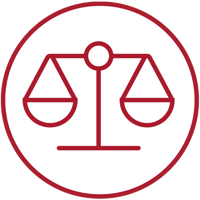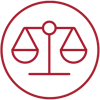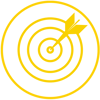
PERSONAL RESPONSIBILITY
What is personal responsibility?
Nearly 30 years ago, the United States Department of Labor released a landmark study, “The Secretary's Commission on Achieving Necessary Skills” report that defined the skills necessary for successful employment.
One of the 12 Foundational Skills they identified was Responsibility. To be successful in life, as well as in the workplace, our children need a strong sense of Personal Responsibility, which we define as, "An individual's tendency to be careful and reliable in their actions."
We all want our children to achieve great things and as Winston Churchill said, "The price of greatness is responsibility."

Activities to build personal responsibility
These three activities have been designed to teach personal responsibility skills across age groups.

elementary students:
Encourage before you correct
Likely all of us have known a co-worker who did shoddy work and relied on others (like us!) to review and correct their work. These individuals may lack Personal Responsibility and take advantage of others. That certainly isn't who we want our children to become. So rather than correcting their work, encourage children to keep trying. Be positive and supportive. If your child becomes frustrated, give them some gentle guidance, but don't solve the problem for them. Encourage before you correct. They will feel proud and more confident if they learn how to solve it themselves.

middle school students:
what am I good at?
A key aspect of Personal Responsibility is perseverance— continuing to work hard and try one's best until a task is completed. We can encourage perseverance in our children by helping them identify what strategies or techniques have helped them be successful in the past and can be applied to the current situation. Have the student write down at least three strategies (for example, keeping an up-to-date calendar, or setting reminders on their smartphone) that have helped them succeed. Discuss the strategies, keep a list of them, and the next time the child is struggling to complete a project or task, review the list and see what proven strategies they can apply to the current challenge.

high school students:
Encourage reporting mistakes
Teenagers make mistakes. We should encourage our children to report their mistakes to us so that we can help them learn from their experiences. Even if we need to discipline them for their mistake, we should always thank them for being honest and telling us, and we should discuss with them how they could have handled the situation better. Mistakes are a great learning opportunity for our children if we encourage them to share their mistakes with us, respond with patience and understanding, and help them learn from the experience.
Additional activities for students and families
Learn more about the rest of the skills measured by the DESSA and access activities that families or educators can use with students K-12 to build their skills.
%20(1).png?width=150&height=150&name=Aperture%20Stacked%20Blue%20Logo%20(1)%20(1).png)







